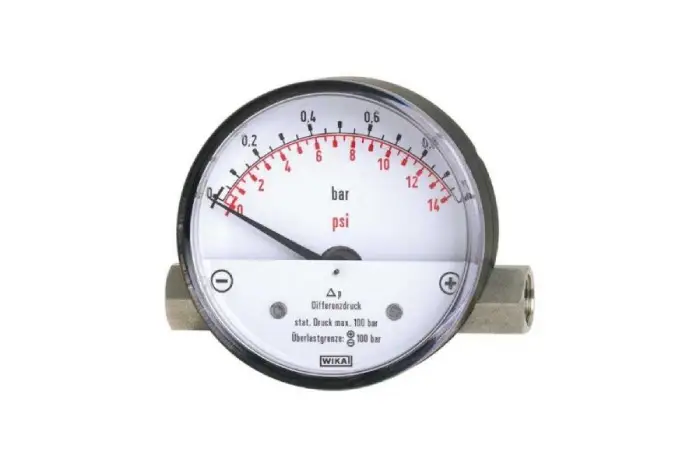
16 Jun differential pressure gauges
A differential pressure gauge is a type of pressure measurement device that is specifically designed to measure the difference in pressure between two points in a system. It consists of a mechanical gauge mechanism that responds to the pressure difference and provides a visual indication of the measurement.
The operation of a differential pressure gauge relies on the principle of measuring the pressure drop across a restrictive element, such as an orifice plate, venturi tube, or flow nozzle, placed in the fluid flow path. The pressure difference across the element is proportional to the flow rate of the fluid.
Differential pressure gauges are commonly used in various applications, such as monitoring filter conditions, measuring flow rates, and detecting pressure drops across equipment or systems. They are particularly useful in HVAC systems, process industries, and fluid control systems, where accurate measurement of pressure differences is essential for proper system operation and maintenance.
It’s important to note that differential pressure gauges should be selected based on the specific requirements of the application, including the pressure range, accuracy, compatibility with the measured fluid, and environmental conditions.

